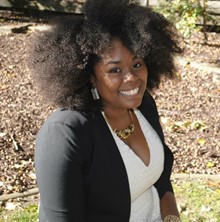More than 14 months into the COVID-19 pandemic and roughly 330 days after the murder of George Floyd, a guilty verdict is but a brief and temporary solace. Derek Chauvin was found guilty of second-degree murder, third-degree murder and second-degree manslaughter. White supremacy is rooted deeply in many of this nation’s institutions and it lies patiently in wait, ready to deliver a blow at any and every turn. There is still the next phase of sentencing and whether it is fitting for the crime; additionally, the opportunity for an appeal – both processes that continue to drag out the pain and remind its onlookers that this system is neither equal nor fair.

On April 11, the week before this verdict, police officer, Kim Porter, killed 20-year-old Daunte Wright, an African American, in nearby Brooklyn Center, Minnesota. While folks took to the streets to protest, the body camera footage was released of 13-year-old Mexican-American Adam Toledo being killed by police officer Eric Stillman in Chicago, Illinois. And the same day as news of the verdict broke of alleged justice for Floyd, 16-year-old Ma’Khia Bryant, a current foster youth, was shot and killed by police in Columbus, Ohio.
Since the beginning of this trial, more than three people a day have died at the hands of law enforcement, according to The New York Times. People of color are constantly existing in a layered chaos of trauma inside of trauma, of injustice after injustice. So, does this feel like a win? Not particularly. The world is watching while we try to collectively crawl ourselves out a pit of never-ending dysfunction. These three guilty verdicts were the only respectable options we had on the greater world stage.
John Wooden, a former UCLA basketball coach, once said, “the true test of a man’s character is what he does when no one is watching.” But, what does America do when the world isn’t watching? And would we even be discussing this trial if the entire world hadn’t witnessed Chauvin murder Floyd on the cold, hard ground? Is America even capable of enacting restorative justice?

First and foremost, a jury of 12 individuals will never fully capture the diversity of America. One jury is not reflective of an entire country. One guilty verdict does not vindicate a 400+ year reign of terror of white people enslaving, raping, torturing, exploiting, harassing, oppressing, degrading, lynching and destroying Black people and other people of color. As a country, now is a time to pay attention to false equivalencies. Sweeping statements of accountability mislabeled as justice are rampant. Chauvin’s guilty verdicts are acts of accountability, not justice.
Many white politicians have loudly and actively joined the wider conversation on the intersection of police brutality and white supremacy. Instead of this being proof of progress, it further demonstrates their disconnect with the lived realities of Black and brown communities. President Joe Biden referred to Floyd’s murder as a moment that “…ripped the blinders off.” But… for who? Black Lives Matter and other organizations have been furthering the calls for change and laying out the necessary steps to affect change for decades.
Despite the explosive, viral moments, white Americans repeatedly replace their blinders after every insidious act. Speaker of the House Nancy Pelosi thanked Floyd for his “sacrifice,” as if he intentionally sought to be murdered by a police officer, in the name of justice, when Chauvin who chose to kill an innocent man. This insensitivity is another display of white politicians inserting themselves, vying to be on the right side of history or in front of the camera lens. They tend to lack the depth and understanding of what many people of color know all too well exists in this country.
Criminal justice professor Philip Matthew Stinson leads the Henry A. Wallace Police Crime Database team at Bowling Green State University. In 2005, the group began tracking cases of law enforcement officers who have had media coverage of their fatal negligence. All in all, only 5% of those officers have been convicted of murder – just seven officers across the entire United States. The Washington Post’s police shootings database reveals on-duty police officers have shot and killed more than 5,000 people since 2015.
According to Merriam-Webster’s Dictionary, “justice is the maintenance or administration of what is just especially by the impartial adjustment of conflicting claims or the assignment of merited awards or punishments.” Justice for Floyd is a guilty verdict for Chauvin and a life sentence or the death penalty. Justice for Black Americans looks like financial reparations, life without the fear of institutionally sanctioned violence, and the freedom to heal from the existing legacy of the United States. What will be the legacy of America – one of pillaging or of restoration?





